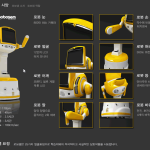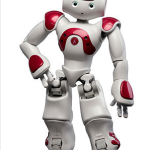The world of science and technology is always looking for new and revolutionary ways to integrate technology into humanity’s daily lives. Robotics has been in the lead in making these things happen. Every day there are new discoveries and the manufacturing of robots that can function like humans as much as possible while still working more efficiently.
The majority of these innovations originate from Japan and more recently, in South Korea. These countries want to be included in globalization and its citizens need to learn the English language. The lack of professional English teachers has led to the innovation of the robot teacher.
With a robot for a teacher, a foreign teacher can teach via video conferencing or a pre-programmed lesson can be taught to the children virtually through its LCD head. Robosemis just one of the robots widespread in the South Korean educational system, promoting classroom robotics for each one of their schools. It was developed by Yujin Robot in Seoul It is capable of movement and gestures and equipped with speech recognition and motion tracking software.

Source: http://iq.intel.com/robot-teachers-in-the-classroom/
Here are some of the advances in the world of robotics in the educational sector:
Advantages of Robot Teachers
While robots cannot be used permanently as replacements for human teachers in a school setting, it was discovered that robots are very good company for children with learning disabilities. Special needs children may require special attention and a special kind of learning. While there are teachers totally capable of adjusting and teaching these types of kids, it cannot happen in a normal classroom setting with other kids around vying for their attention. A robot can be programmed to pay its full attention to one child at a time and not be distracted.
In England, the robot Nao has helped children with Autism. Autistic children have a difficult time functioning in a social setting, they can do many unconventional things that will be awkward or uncomfortable for other people. Robots help them because they do not have emotions of awkwardness, they will not hurt the child’s feelings with negative reactions. Another robot named Kaspar helps autistic children navigate the social dimension safely by being able to teach children appropriate facial expressions and actions.

Source: http://iq.intel.com/robot-teachers-in-the-classroom/
Aside from helping children with special needs, robotics are also famous around the world as teachers for language development in preschool children. Like in Korea, whose robots teach English, in America the robot named RUBI was used to teach foreign languages.
Furthermore, robots have dual functionality that of computers or tablets and that of human teachers. It can interact with children, albeit unemotionally, while being able to show virtual activities and learning media through LCD monitors in their bodies. These robots can be tasked to do repetitive tasks in a classroom and make it entertaining and look cool, which makes them excellent assistant teachers.
One of the other benefits of a robot that can counter human frailty is patience. A human’s patience is limited and teachers have longer patience than most but limited nonetheless. A robot has unbridled attention and limitless patience which could really be advantageous with young children who nowadays are getting more and more hyperactive.
The Ultimate Question
These developments lead to the question of whether or not teachers are in danger of losing their jobs and being replaced by robots. The futurist from Intel believes that it is not at all possible for our teachers to be replaced by robots. Our educational system will not survive with robots as teachers because classroom learning is a human social experience and that cannot be experienced with robots.
Also, children perceive robots as toys rather than as teachers, a hard lesson learned by the developers of RUBI when it went back without one of its arms. Children lose respect and can decide not to pay attention.
The lack of human emotion that is necessary for connecting with students cannot be hardwired or programmed. While scientists, engineers, and psychologists all work together to create a more human-friendly and emotionally adjusted robot, they have yet to succeed.
Despite what many people think, human personalities and human reactions can’t be described or defined by a single theory or book or quiz on BuzzFeed. The different histories, genes, and environmental factors all combine together to form a completely unique personality. A robot will not be able to understand and will not be able to react to any of these things as humans do. Scientists cannot program every personality type in a robot and expect the robot to understand the human persona simply because humans do not follow these specific protocols. Humans are spontaneous and illogical, which a robot has no understanding of. In these cases, only another human could understand.
They may be faster, more low maintenance, have unlimited patience and have a higher memory capacity, these things only make them great assistants for teachers to do their jobs better. With the help of technology, human teachers will have even more opportunities to make real connections with their students. The youth is the hope of the nation and our teachers are the ones to shape them if robots take over the shaping of the youth, they may not develop psychologically and emotionally.
People in the industry are afraid that the rise in robotics could cost the jobs of thousands of people whose functions in society are going to be replaced. There is certainly that risk, especially for menial labor that requires repetitive tasks and easily programmable activities. We are afraid that this uprising of technology could lead to the annihilation of humanity, as depicted in too many films, but scientists believe that the world hasn’t yet lost the need for genuine human emotion which is why robots can never replace humans.
Robots have always been a fascination of humans, it’s like we are attempting to create life from scratch trying to act like a god. Now, we have found ways to make them functional in our society, but hopefully, we try harnessing more humanity in ourselves instead of manufacturing them in the form of robots.




